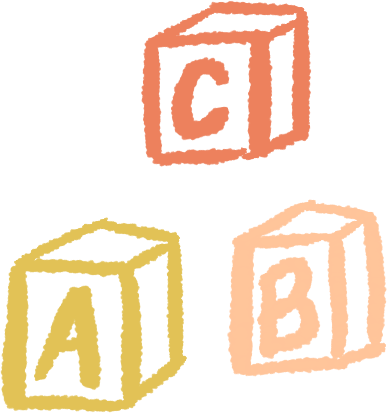Concerned Parent
We’re Here To Help
We’re Here To Help
If you’re concerned about your child’s communication development, your intuition to act now is exactly right. Because while it’s true that some kids do catch up on their own, we won’t know which ones will and won’t until after it’s already happened.
Our advice: assume your child will need support and get it for them. Worst case scenario, they catch up quickly and you can stop the support early!
Here’s your parent action plan:
Get familiar with toddler communication milestones.
Learn simple ways to encourage speech development at home.
See a speech therapist if they stop meeting milestones.
Try not to worry.
Remember, this is not your fault!

With strategies, support, and step-by-step guidance, it teaches you to help your toddler communicate more and feel frustrated less. Without adding more to your plate or mental load!
✓ Reduce toddler frustration
✓ Increase signs, words + phrases
✓ Add language to daily routines
✓ Connect through play
Help them say more ↴
WE KNOW HOW IT IS…
If your child is talking less than others their age, you might be starting to worry.
Are those kids ahead or is mine behind?
Could this be a sign of a delay?
Will they need speech therapy?
It can be a really heavy part of being a parent. Your stress rises every time you meet a talkative child their age. You worry that your child is behind. And you don’t know how to fix it.
You try talking to your friends with kids, but they don’t know how to help. Well-meaning family members ask questions that make you feel bad. Care providers tell you to “wait and see” until your child turns two.
And all the while, your parental instincts are growing louder and louder!
If you’re in this now, we want you to know that you’re not alone, that your concerns are valid, and that there’s so much support available—for your child and you. Starting right here and now!


There’s more to communication than the number of words your child can say. This post will give you insight into the word milestones you’re curious about plus other factors we use to assess communication development.

Learn more about your child’s language development and what being a late talker really means, so you can feel confident in your understanding of where they’re at now, and what they might need next.

Google goes from encouraging to terrifying in 5 seconds flat. If you’re wondering about the signs of speech problems in toddlers and you want non-scary, research-backed answers, read this instead!